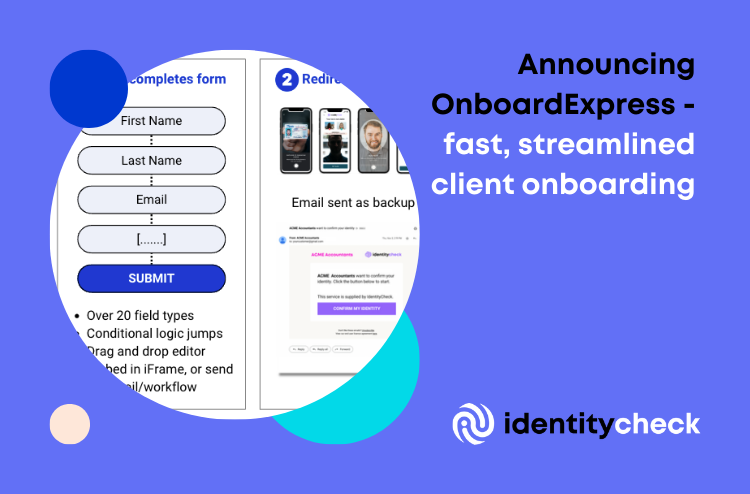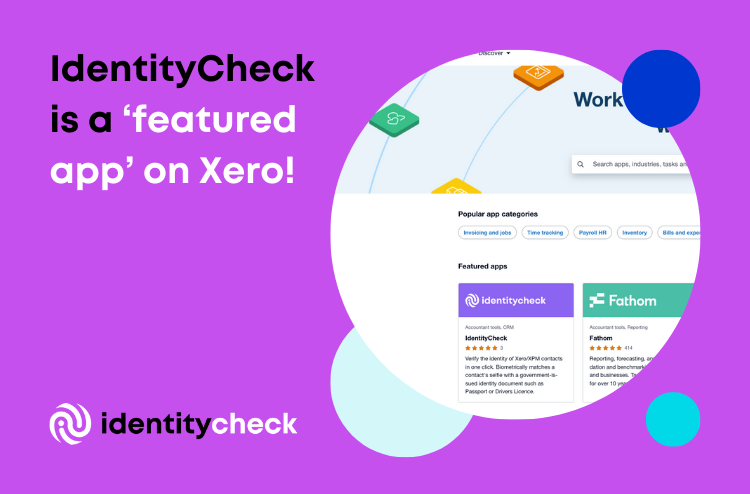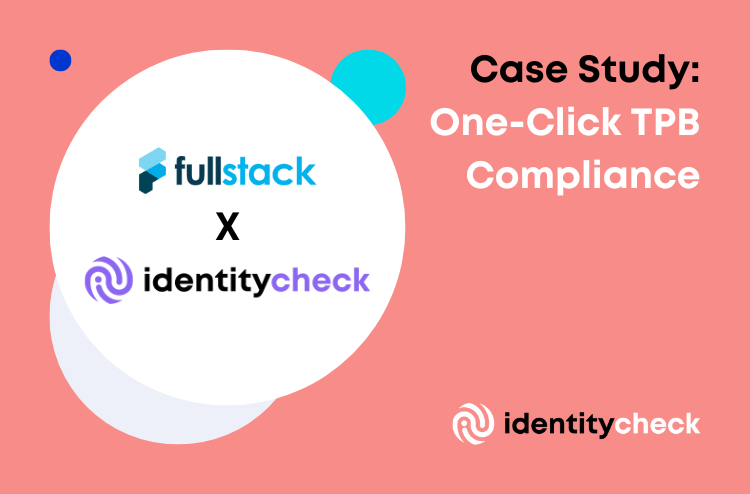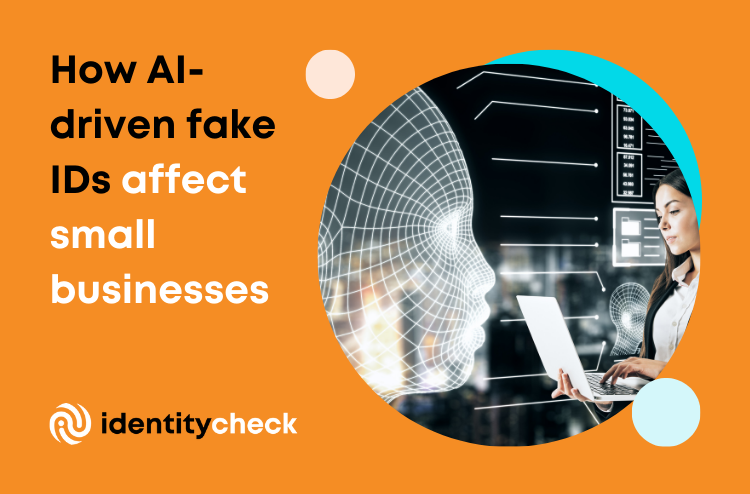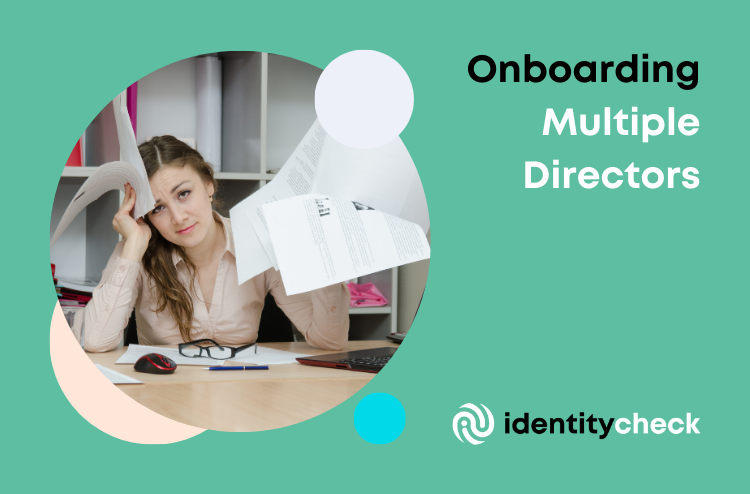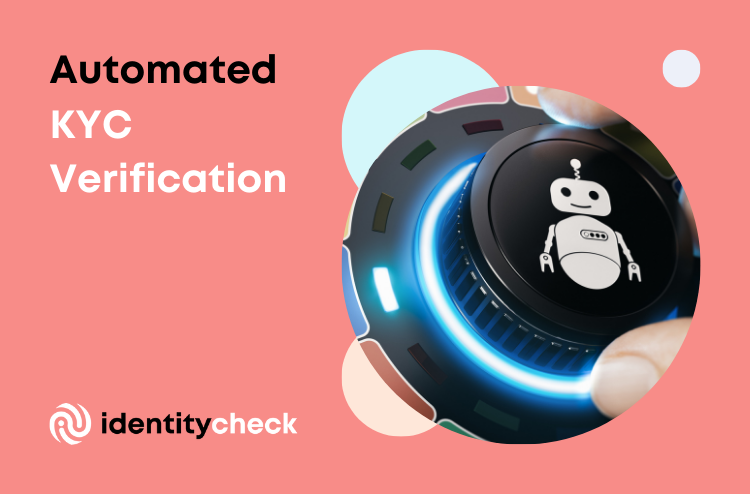KYC checks, or Know Your Customer checks, are an important part of many industries, including accounting, real estate, recruitment, conveyancing, crypto, and banking. These checks are used to verify the identity of clients and assess potential risks for money laundering or financing terrorism. While the specific ways that companies in these industries perform KYC checks may vary, there are some common elements that are typically included in the process.
Accounting KYC
In the accounting industry, KYC checks are often performed as part of the onboarding process for new clients. This typically involves collecting and verifying information about the client’s identity, such as their name, address, and date of birth. This information is typically obtained through official documents, such as a government-issued ID or passport.
In addition to collecting and verifying this basic information, accounting companies may also perform additional checks to assess the client’s financial history and potential risk factors. For example, they may review the client’s credit history, look for any previous bankruptcies or legal issues, and conduct searches of public databases to identify any potential red flags. These additional checks are designed to help ensure that the client is a good fit for the company and does not pose any significant risks.
Read more about the considerations for Australian-based Accountants conducting KYC here.
Real Estate Verification of Identity (VOI)
In the real estate industry, KYC checks (aka VOI – Verification of Identity) are typically performed as part of the process of buying or selling a property. This may involve collecting and verifying information about the client’s identity, as well as their financial history and creditworthiness.
For example, real estate companies may require clients to provide proof of their identity, such as a government-issued ID or passport, and may also ask for information about their current income and assets. In some cases, real estate companies may also conduct background checks to assess the client’s credit history and financial stability. These checks are important because they help ensure that the client has the financial means to complete the transaction and does not pose any risks to the company.
Recruitment Identity Verification
In the recruitment industry, KYC, or Know Your Customer, is a process that is used to verify the identity of job candidates and assess their potential risks to the company. The specific steps involved in a KYC check can vary from one recruitment company to another, but generally speaking, the process involves collecting and verifying information about the candidate’s identity, such as their name, address, and date of birth. This information is typically obtained through official documents, such as a government-issued ID or passport.
Once the candidate’s identity has been verified, the recruitment company may also conduct additional checks to assess the candidate’s employment history and qualifications. For example, the company may ask the candidate to provide references from previous employers, verify their education and training, and conduct background checks to assess the candidate’s criminal history and creditworthiness. These additional checks are designed to help the recruitment company determine whether the candidate is qualified for the job and does not pose any risks to the company.
If the candidate passes all of the necessary KYC checks, the recruitment company will then proceed with the hiring process and offer the candidate the job. However, if the candidate does not pass the KYC checks or is found to pose a significant risk, the company may decide not to hire the candidate.
Overall, the goal of KYC checks in the recruitment industry is to help companies comply with relevant laws and regulations, protect themselves from potential risks, and ensure that they are only hiring trustworthy and qualified employees.
Read more about the importance of employee screening here.
Conveyancing VOI (Verification of Identity)
In the conveyancing industry, VOI (Verification of Identity) checks are typically performed as part of the process of transferring ownership of a property. This may involve collecting and verifying information about the client’s identity, as well as their financial history and creditworthiness.
For example, conveyancing companies may require clients to provide proof of their identity, such as a government-issued ID or passport, and may also ask for information about their current income and assets. In some cases, conveyancing companies may also conduct background checks to assess the client’s credit history and financial stability. These checks are important because they help ensure that the client has the financial means to complete the transaction and does not pose any risks to the company.
Banking KYC
In the banking industry, KYC is a process that is used to verify the identity of customers and assess their potential risks for money laundering or financing terrorism. The specific steps involved in a KYC check can vary from one bank to another, but generally speaking, the process involves collecting and verifying information about the customer’s identity, such as their name, address, and date of birth. This information is typically obtained through official documents, such as a government-issued ID or passport.
Once the customer’s identity has been verified, the bank may also conduct additional checks to assess the customer’s financial history and potential risk factors. For example, the bank may review the customer’s credit history, look for any previous bankruptcies or legal issues, and conduct searches of public databases to identify any potential red flags. These additional checks are designed to help the bank determine whether the customer is a good fit for the bank and does not pose any significant risks.
If the customer passes all of the necessary KYC checks, the bank will then proceed with the onboarding process and open an account for the customer. However, if the customer does not pass the KYC checks or is found to pose a significant risk, the bank may decide not to open an account for the customer.
Overall, the goal of KYC checks in the banking industry is to help banks comply with relevant laws and regulations, protect themselves from potential risks, and ensure that they are only doing business with trustworthy customers.
Education – verifying student identities
There are several reasons why students might need to have their identity verified:
- To enroll in an online course or program: Many online educational institutions require students to verify their identity before they can enroll in a course or program. This helps to ensure that only those who are eligible to enroll are able to access the course materials and receive a certificate upon completion.
- To take an online exam: Some online exams, particularly those that are proctored or that are used to award professional certifications, require students to verify their identity before they can take the exam. This helps to prevent cheating and ensure the integrity of the exam process.
- To access certain resources or services: Some educational institutions or organizations may require students to verify their identity in order to access certain resources or services, such as library materials or career services.
There are several ways that students can verify their identity, including:
- Providing a government-issued ID: This could be a driver’s license, passport, or national identification card.
- Taking a photo of themselves using a webcam: This can be done using a computer or smartphone, and the photo is then compared to the student’s ID to confirm their identity.
- Completing a challenge-response process: This may involve answering questions based on personal information that is only known to the student, such as their date of birth or the name of their high school.
- Using a biometric authentication method: This could involve scanning a fingerprint, iris, or facial recognition to confirm the student’s identity.
It’s important to note that the specific method of identity verification may vary depending on the institution or organization that is requiring it.
Conclusion
Although in each industry, the KYC process may be called something slightly different, there are many common elements. While the reasons may also vary, companies within each industry face similar challenges in completing the KYC process securely and cost-effectively.
Read more about the risks and implications of traditional KYC here.


